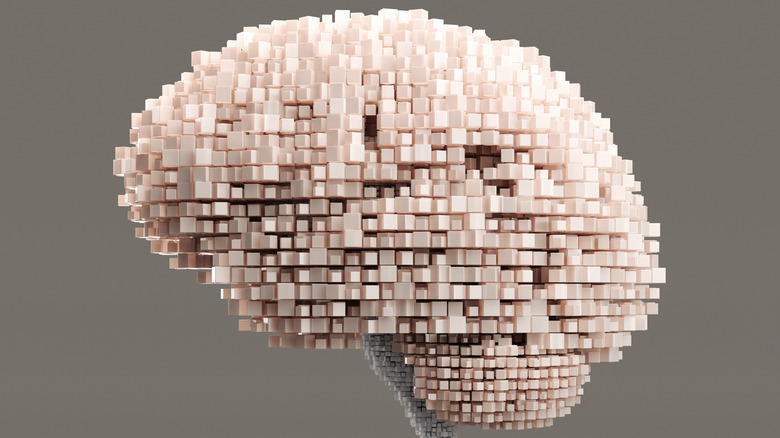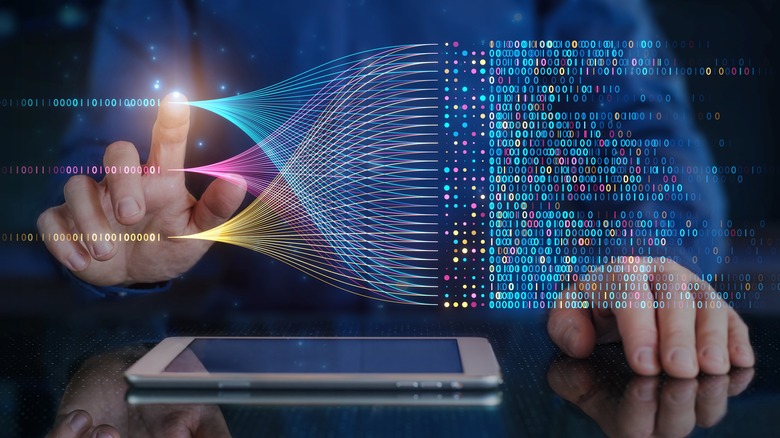AI Versus Machine Learning: What's The Difference?
In a March 2023 post on GatesNotes, Microsoft mastermind Bill Gates shared his thoughts on the advance of AI and what it may mean for us all. Gates recalled the previous September, when ChatGPT tackled questions from an Advanced Placement biology test and scored 59 out of 60 points. Of the technology, Gates wrote, "It will change the way people work, learn, travel, get health care, and communicate with each other. Entire industries will reorient around it."
ChatGPT may be the highest-profile example of AI in the headlines at the moment (a fact that some are unfortunately taking advantage of in fleeceware scams), but it's just a small part in the overriding wave of technological advancement Gates deemed "The Age Of AI." The key to developing such technology and best taking advantage of it, however, is in utilizing both AI and machine learning to the best of their increasingly substantial potential. Though the two terms are closely connected, there are some important differences to note.
Artificial intelligence: When a machine shows off its brain
Artificial intelligence, as the name implies, is determined by a machine's ability to demonstrate its intelligence. As is typical of we self-absorbed humans, this is further defined as "the capability of a machine to imitate intelligent human behavior," according to Merriam-Webster. It's precisely this that makes ChatGPT's stellar performance in the aforementioned AP biology exam such a triumph: the AI was indeed able to perform as an intelligent human.
To expand on that analogy, human scholars could not have performed so well in that exam without learning the material first, and ChatGPT, too, had to "learn" an enormous amount of material as well. The very reason that the chatbot is so sophisticated, in fact, is that it scanned a great wealth of content from around the Internet.
Artificial intelligence, in effect, is a mark of how a piece of software or hardware uses or demonstrates the knowledge it has gathered. Machine intelligence, meanwhile, is a separate area within AI itself. It's distinct in that it is, instead, one way in which the AI in question gathers that information.
Then there's machine learning
In general terms, AI is a term used for systems that have been programmed to perform sophisticated tasks, including some of the remarkable things ChatGPT has been able to tell us. Machine learning, meanwhile, is an area of artificial intelligence relating to software that can analyze trends and so predict the future (Analytics Insight).
This means, essentially, that we can thank machine learning for our devices constantly sharing tempting adverts of other products from stores we've bought from or perused. In 2016, Nidhi Chappell, machine learning specialist at Intel, explained the distinction to Wired. "AI is basically ... how we make machines intelligent, while machine learning is the implementation of the compute methods that support it," Chappell said, further explaining that the algorithms that allow such predictions are the fruits of machine learning.
MIT Management Sloan School notes that some primary examples of machine learning include systems that enable banks to detect fraud (when a transaction occurs outside of an individuals' usual shopping habits), website chatbots becoming more and more helpful as they're exposed to more conversations, and the infamous recommendations that various sites and services offer. In the latter, a system analyzes what people have eaten/bought/watched, and from that data, can provide recommendations.


